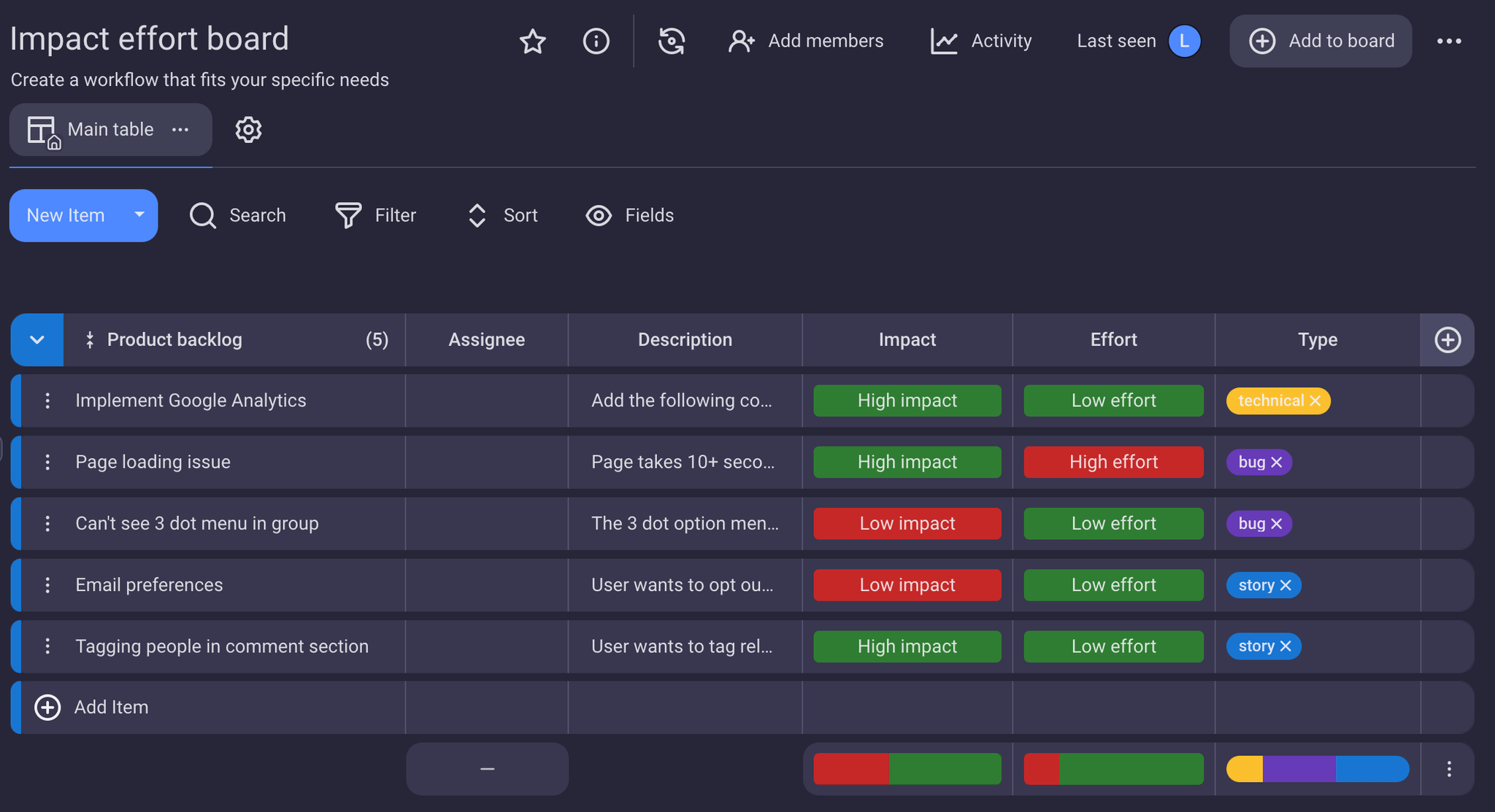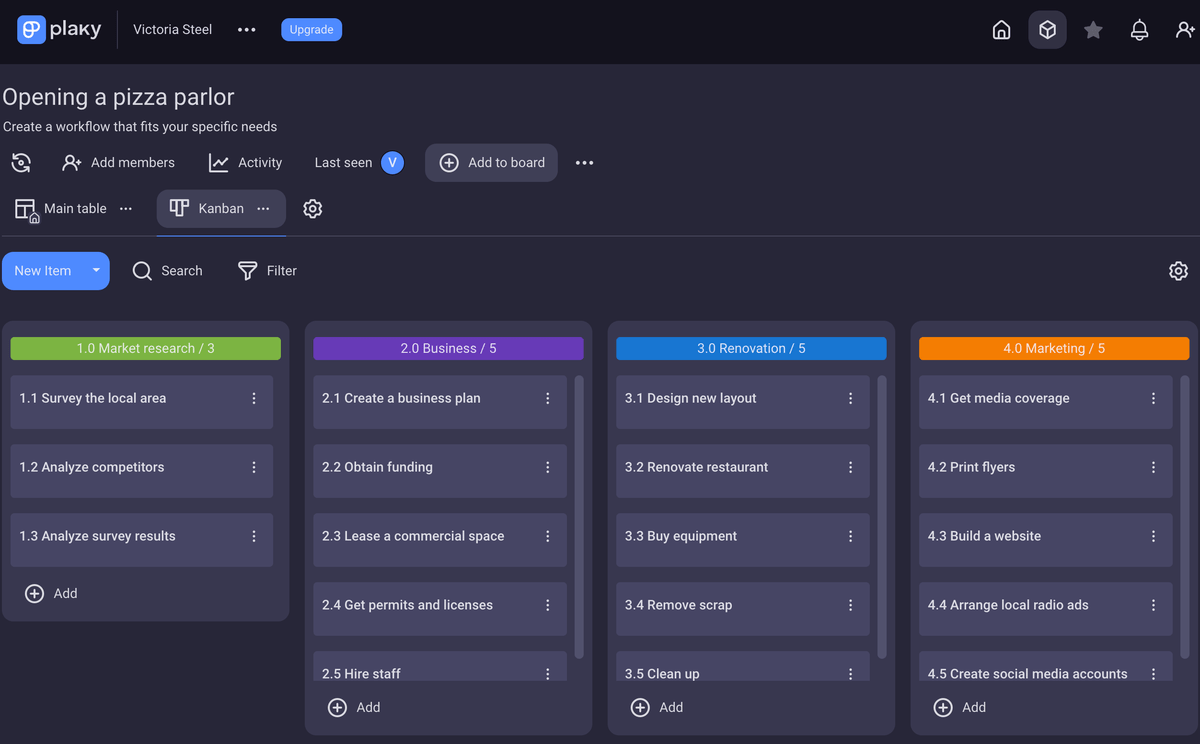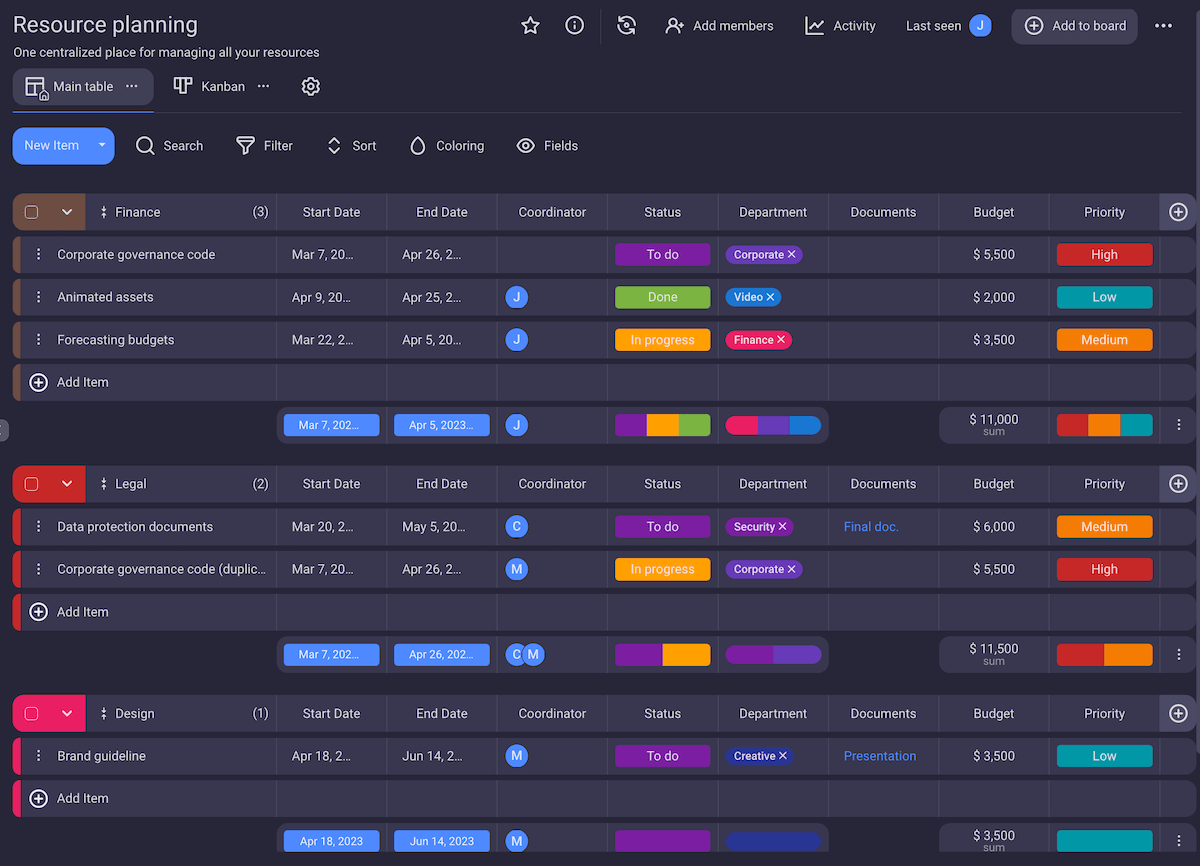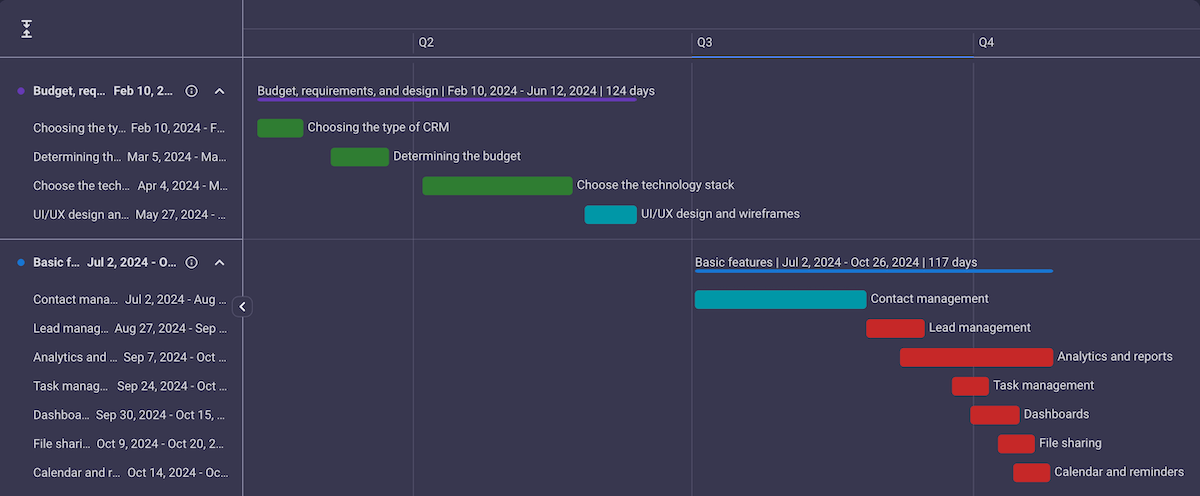If you’re second-guessing yourself about becoming a project manager, you’re probably right to do so!
Project management is one of the most challenging career paths you can take, so you shouldn’t just rush in blindly. To excel in this line of work, you need a wide range of skills and aptitudes — and some of them might surprise you.
Want to find out more about what’s expected from you and what qualities you need to succeed in this career? Read on for a closer look at what it takes to be a good project manager!

What are the most important qualities of a good project manager?
A project manager needs to have many exceptional qualities. Some of them are innate, while others are developed through training and experience. Either way, they’re all equally vital if you want to succeed in this field.
Project managers who stand out are usually the ones who embody everything an ideal project manager should be. This includes things such as:
- Superb organizational skills,
- Excellent leadership,
- Creative problem-solving skills, and
- The willingness to go above and beyond to deliver optimal results.
There’s a lot more to it, so let’s break down the 13 most important characteristics of a project manager in more detail.
Good communication skills
It’s impossible to overstate how important communication is in project management, especially for remote teams. And that importance is doubled for project managers, for a number of reasons.
Put simply, a manager has to be accurate and efficient in their communication, regardless of the medium. On top of that, they need to know which medium they should use in which situation, and how to use it effectively.
Poor communication skills can result in inefficient use of time, or — in the worst case — costly mistakes due to miscommunication. And if vital communication is spread out across multiple channels, these issues become even more problematic.
Centralize team communication in Plaky
Top-notch organizational skills
As a project manager, your job is to create and maintain the project plan. This involves:
- Allocating resources,
- Creating a project time frame,
- Managing workloads,
- Prioritizing tasks,
- Maintaining loads of documentation, and
- Communicating not just with your team members, but also with external stakeholders.
That’s a lot — and we’ve only scratched the surface!
The only way you’ll be able to stay afloat amidst this sea of information you have to navigate is by having exceptional organizational skills. And even then, you’ll need a tool like Plaky to help you do everything listed above.
💡 Plaky Pro Tip
You may have to manage a few different teams (and their workloads) at a time, adding yet another thing to your seemingly never-ending list of tasks. But don’t worry — here’s how to effectively manage multiple teams without losing your mind:
Flexibility
According to Molly Beran, a PMP-certified project manager, flexibility is one of the most important qualities of a project manager, as you frequently have to adapt on the fly:

“No project ever goes according to plan. Some go much more quickly, some drag on for longer than anyone thought. A good project manager is able to change and adapt quickly to changing circumstances so that the project can continue moving forward.”
For all these reasons and more, a project manager simply needs to have an agile mindset — even if they’re not using Agile.
Customize your project workflow in Plaky
Stakeholder management skills
Project managers are at the center of the project. They have to manage everything, including stakeholders. And this is the really tricky bit.
See, a stakeholder is any person (or even organization) who can have an impact on the project. In a large organization, this can include many higher-ups — and that’s just if we take internal stakeholders into consideration.
To make things even trickier, you’ll often run into situations where many of these stakeholders won’t have the same attitudes toward your project. Some may be its champions, others its detractors who think your project resources should be used elsewhere. Some may be more risk-averse than others — you get the picture.
That said, if you want to be an effective project manager, you need to know how to manage all stakeholders — their expectations, buy-in, communication, etc. If you don’t, they could spell doom for your project, and lead to major issues with funding, scope creep, and so on.
Ability to facilitate change
In large organizations, change just happens — and there’s often nothing you can do about it. Maybe higher management has decided to make sweeping changes to workflows or wants to switch to different tools. Maybe new legislation demands changes in project execution.
Whatever the case, people tend to not like change. The friction caused by this can seriously affect the performance of your project team if they’re not on board with the idea.
Good project managers help out their teammates — and other stakeholders — through this transitional period. They try to secure stakeholder buy-in and then work to reinforce the changes after they’ve been implemented.
💡 Plaky Pro Tip
The burden of change doesn’t always fall on the shoulders of project managers. Large organizations may have a dedicated change manager whose job is to ensure transitions go smoothly. This article explains the differences between project and change management:
Ability to see the big picture
So, we’re not even halfway through this text, and we’ve already covered a ton of things project managers are expected to do.
If you’re overwhelmed just reading about it, can you imagine how it must feel to be at the very center of a project? Swamped by deadlines, schedules, risks, stakeholders, and so on, inexperienced PMs sometimes have trouble seeing the forest for the trees.
But that’s not something they can afford to do. A project manager must always remain aware of the big picture and steer the project toward it. This means understanding where your project fits within the larger corporate context.
Understanding not just the scope of the final deliverable, but also its function and the organizational objectives it aims to fulfill, will elevate you to the ranks of great project managers.
Risk anticipation and management skills
Risk management is a crucial skill for any project manager, but what makes amazing project managers truly stand out is their ability to anticipate most project risks.
Your risk management efforts can only be as good as your risk identification skills. If you’re aware of a risk, you can track it, mitigate it, or respond to it when it turns into an issue.
On the other hand, issues that were never on your radar in the first place can cause major setbacks or even completely stop the project in its tracks.
Good project managers rarely, if ever, get blindsided by unknown risks.
Manage all project risks in Plaky
💡 Plaky Pro Tip
One way to improve risk identification is by performing a SWOT analysis. This requires you to analyze your project strengths, weaknesses, opportunities, and threats, which naturally forces you to think about the risks your project is susceptible to:
Ability to avoid unnecessary project assumptions
Factors we consider to be true, without any actual proof, are project assumptions. You can’t escape making them, as most projects are initiated on the back of promising assumptions.
For example, the continuous development of Plaky — our project management software — operates under the assumption that there is room for it in a saturated market. We think other project management tools are all overpriced for what they offer and that most of them are too restrictive and too confusing for non-engineers to use.
By speccing Plaky’s development to the needs and requirements of our teams (engineering as well as marketing, support, content, HR, etc.) and keeping the costs low, our assumption is that the end product will still attract enough users to be profitable on its own merit.
However, the more implicit assumptions you make, the higher the chance some of them will turn out to not be true and come back to bite you. In a sense, every project assumption is a project risk, especially when project managers don’t explicitly state these assumptions.
A good project manager is aware of the assumptions they make and makes sure to write them down and share them. That way, their team members can correct them if they catch something wrong.
💡 Plaky Pro Tip
You can learn more about how and why we’ve built Plaky — along with some teasers of future features — in this article:
Reliable leadership
Much like with communication, more goes into quality leadership than some might think.
A leader isn’t someone who just issues orders from a position of authority. They also empathize, build rapport, delegate effectively, and motivate their team to work together toward a project’s success.
Moreover, a good project manager has to lead by example and embody all the qualities they want to see in their team. Demonstrating accountability and trust goes a long way if you want to see them in your team members.
💡 Plaky Pro Tip
A good leader knows the importance of promoting autonomy in their team. If that’s something you’re struggling with, check out the article below for some specific tips:
Creative problem-solving skills
Whenever organizational mishaps or complications pop up, the project manager needs to be able to come up with a solution quickly to keep the project on track. Creativity plays a big role here, as project managers always work within certain project constraints.
Strong problem-solving skills help project managers adapt to changing situations efficiently, resolve conflicts, and even develop new and innovative ways to handle similar issues in the future.
Keep track of project constraints in Plaky
Dedication and responsibility
The project manager is responsible for a project’s ultimate outcome, so it goes without saying that it’s a high-responsibility role. Their work doesn’t just reflect on them but on the company’s bottom line, its reputation, and its employees.
As such, there is no room for half-done jobs.
A project manager needs to be dedicated and always working toward the best outcome. They give their utmost, take responsibility for their mistakes, and do their best to correct them when they happen.
Good listening skills
Another important quality Molly Beran emphasizes is being a good listener:

“As much as project managers will talk to leadership and update teams about the status of a project, I find that the best project managers actually listen to their teams.
“Is someone overwhelmed with outside work? A good listener will hear that in a person’s tone, or notice patterns in how they speak about their workload week over week (even without the team member directly saying it — no one likes to admit they are in over their head).”
She goes on to elaborate that being a good listener also means knowing when and where to listen since you can’t hear everything every team member says:

“Likewise, a good project manager will realize that they can’t be in absolutely every meeting about their project, which means that they need to be listening in other venues for updates that may impact their project.
I see this all the time in IT — at a team meeting, someone on a completely different team will announce an outage of a particular technology on an upcoming weekend, which may be the same weekend we were planning on pushing updates to that very piece of technology. A good project manager will catch updates no matter the forum, and pass along updates that will impact their projects.”
Ability to handle pressure
Even though not all projects are inherently stressful, there will always be some degree of pressure to contend with. Every project will have a schedule, unforeseen complications, and financial stakeholders who expect a good return on their investment.
As such, a successful project manager is one who knows how to manage stress and work under pressure. They have to be able to stay focused and thrive in critical situations, and they need to represent a stable anchor for the project team.
How to be a good project manager: Top 10 things to work on
And yet — simply having the right project manager traits and characteristics is only half the deal.
An exceptional project manager should always be looking to improve their skill set and optimize their performance.
One way to improve is to take on more projects. “Practice makes perfect,” as Molly Beran put it:

“The more projects you manage over time, the more you will start to grow and truly develop the skills you need to run projects well. I’ve found this true for anything I’ve wanted to develop in my life — playing musical instruments, learning new sports, and yes, managing projects.”
But, here are some pointers to focus on while taking on more projects to improve.
Ask questions, mostly “why”
As a project manager, your job is to understand everything about the project. The best way to do this is to ask why, repeatedly.
An engineer is pushing for some gold plating?
“Why?”
If it’s just to impress the client, risking scope creep and delays just isn’t worth it. On the other hand, if it will somehow streamline the production pipeline down the line, maybe you should approve the idea.
As Molly Beran put it, one of the ways to become a better project manager is to follow your curiosity:

“Asking questions is a great way to start understanding the work of the projects you are managing and is also a great way to root out issues (sometimes before they happen). Embracing your natural curiosity and asking questions as they arise is a great way to become a better project manager.”
Delegate
There’s a lot that project managers are accountable for. The larger the project, the more moving parts they are directly in charge of. It’s simply impossible for them to do everything on their own.
So, a good project manager must master the art of task delegation.
For example, risk management typically involves tracking risks. Most projects have lengthy risk registers. Tracking all of them, when you’ve got a million other responsibilities, just isn’t realistic.
This is why good project managers assign risks to their team members. Everyone is in charge of keeping tabs on certain risks, preferably those related to their position. The project manager is still accountable for these risks, but they can delegate the responsibility to their trusted colleagues.
If not, they either simply won’t stay on top of the project or they’ll resort to micromanaging everything. Both of these routes lead to disaster.
Manage your team’s workload in Plaky
Prioritize
In theory, project plans run like clockwork. They cover the budget, define the scope — which doesn’t change — and outline the timeline. One successfully carried out project plan later, and the final deliverable is completed, on time, on budget, and specced to the initial scope.
This is, of course, a project management fantasy.
Reality is different.
Scope changes, deadlines get pushed, and budgets run out. Most projects have at least one constraint that they absolutely cannot budge on — not that anyone’s happy about this, it’s just the way it is. Usually, this is the quality, but, in some cases, it might be the deadline — if the product needs to be ready for the holiday season, for example.
Only through effective prioritization can you ensure that your project doesn’t encroach on its most important constraint.

Keep track of task priority in Plaky
Break down tasks
According to Molly Beran, aspiring project managers should focus on taking big goals and breaking them down into actionable steps:

“One of the first things you need to be able to do as a project manager is take something big (i.e., the overall goal of your project), and break it down into smaller, more manageable tasks. This is a skill that some of us develop naturally but comes less easily to others.
“Before you get into managing teams and projects, it’s important that you can think through breaking down work into its component pieces or tasks. Once you can master that skill, you can build a project plan you actually understand and help others adhere to it.”

Credit others
A recurring complaint about project managers that you’ll see on public forums is about them stealing credit. Something to the tune of “Instead of forwarding my email, the PM just copied it and sent it to his superiors, taking all the credit.”
There seem to be a lot of project managers who hog the spotlight and only share — or wholly deflect — blame.
However, this kind of toxic behavior will only lead to mediocrity in the long run. Tired of having their credit stolen, team members will either stop trying or try to undermine the PM. Not that we blame them, but that’s just wasted effort that could be spent on the project itself.
Needless to say, good project managers do the complete opposite — they share success, give due credit, and own failures.
Rely on others
Reading through all of these requirements, it’s easy to get discouraged and feel as if the whole world is on your shoulders as a project manager. But that shouldn’t be the case.
When we asked Molly what advice she would give to her younger self who’s just starting out as a project manager, her response was “You don’t have to do this all by yourself.”

“Early on in my career, I thought I had to handle everything and know everything about my project. And I thought that, if something didn’t go according to plan, it was 100% my fault. I spent months agonizing over my first projects, and I see now that the agony and suffering were a little pointless.
“No single person is solely responsible for a project, and it literally takes an entire team to get work done. Understanding that a project manager is a leader and supervisor of work, but not the only person accountable for the success of a project, is something that I think would have brought me a lot more comfort early on in my career.”
Focus on team building
Many barriers naturally occur in newly formed project teams, such as:
- Poor communication,
- Lack of commitment,
- Senior management meddling, or
- Undefined leadership.
This is especially true in teams whose members haven’t already worked together, where you can inevitably expect some inter-team conflicts to happen.
One of the things that could help good project managers stand out is to get ahead of this issue through effective team building and leadership.
It’s not just about assembling a team of individuals who’re able to perform solo but don’t know how to spell teamwork.
Great project managers actively work to build trust and camaraderie within their team, thereby greatly enhancing overall performance.
💡 Plaky Pro Tip
To learn more about team building in project management, what difficulties you can expect, and how to overcome them, check out this guide:
Get certified
Not all project managers need to be certified (in fact, most aren’t!). However, there are major benefits to getting certified in project management.
First, preparing for the exam will let you gain new knowledge and skills that you might lack, especially if you’re just starting out.
Second, being certified will open up more job opportunities. Some high-end jobs will require a certification — and even if they don’t, it will help you stand out from other candidates.
Finally, according to PMI, certified project managers are usually paid more than their non-certified counterparts. The difference usually ranges from 16% to 32%, which isn’t exactly pocket change.
💡 Plaky Pro Tip
To learn more about what project management certifications you can get and which might be best for you, take a look at the article below:
Reflect on your performance
No matter how prepared or experienced you are, you will make mistakes along the way. The key here is to make those mistakes productive by learning from them.
Even if you were able to successfully complete a project with no major mistakes, there are always lessons to be learned.
By reflecting on the performance of the project and on your own performance as a manager, you stand to:
- Expand your skills,
- Minimize mistakes,
- Increase efficiency,
- Improve your project success rates, and more.
Keep track of project performance in Plaky
💡 Plaky Pro Tip
Learn how to properly capture lessons learned in the post below:
Use the right tools
As technology is advancing rapidly, project managers need to stay ahead of the curve. A crucial part of this is identifying and picking the best tools to maintain efficiency — and make their jobs easier.
For example, many workplaces still use spreadsheets to manage projects and email as the primary means of communication, which is a bad idea for many reasons.
Among other things, spreadsheets are prone to mistakes and have limited collaboration features. Meanwhile, email makes it rather easy for important documents to get lost.

In contrast, specialized project management software like Plaky provides an antidote to all these issues. It unifies task tracking, scheduling, and communication features in one platform, making organization much easier and faster — not to mention more user-friendly for everyone.
Need to elevate your performance? Try Plaky
While project management is challenging, you can use technology to simplify it.
A cloud-based project management tool such as Plaky is easy to adopt and use by the whole team — and it provides a variety of useful features that conventional planning tools might lack, such as:
- Seamless collaboration and communication through a unified platform,
- Effortless and accurate scheduling with the help of Gantt charts,
- Convenient project setup with various pre-made project management templates,
- Easier accountability with a fully transparent activity log, and much more.

Essentially, Plaky can greatly help with all manners of project management struggles, as it lets you:
- Have a comprehensive and dynamic overview of your projects,
- Organize tasks easily and accurately, and
- Communicate effortlessly with your team — anytime and anywhere.
Ready to try project management on easy mode and improve your performance? Create a free Plaky account today!

